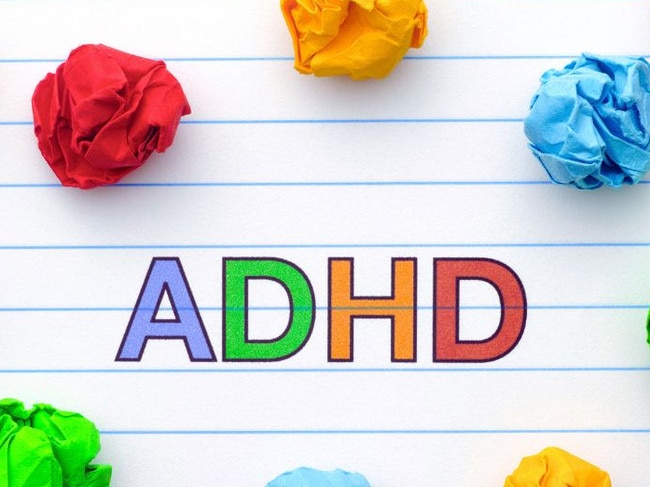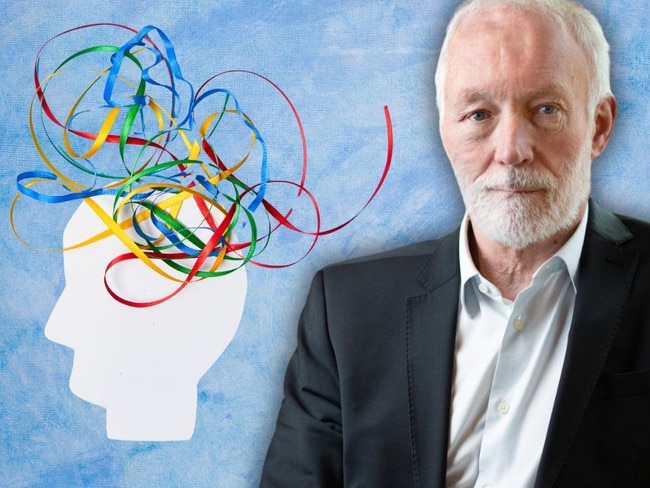Psychiatrist Pat McGorry’s concerns about how ADHD is diagnosed
Psychiatrist Pat McGorry calls for more regulation around the growing cases of ADHD, saying the increase is partly driven by “fashion” and “commercial determinants”.
Neurodivergence
Don't miss out on the headlines from Neurodivergence. Followed categories will be added to My News.
The world of psychiatry has been unexpectedly turned upside down.
In the past, due to stigma and neglect, people were not particularly keen to be “labelled” with a psychiatric diagnosis. People felt ashamed and were often shunned.
Partly as a result of this, there was little pressure on governments to fund mental health care. Mental illness remained largely hidden.
That has turned around over the past two decades with increased awareness and acceptance of common mental disorders like anxiety and depression.
It is certainly socially acceptable at least to own that one is experiencing these illnesses. Sadly, this is less so the case for illnesses like schizophrenia, bipolar disorder, borderline personality or anorexia nervosa.
And then there is ADHD, or attention deficit hyperactivity disorder.
Despite the views of some in the anti-psychiatry world, there is absolutely no doubt that ADHD is a real disorder that typically begins in childhood, disrupts development and results in substantial functional impairment.

There is effective treatment available which can make a tremendous difference.
This involves a combination of behavioural interventions, restructuring social, educational or working environments, and prescription of stimulant medication.
It seems paradoxical that stimulant medication, such as amphetamines, should improve attention and reduce hyperactivity, but this is what happens with successful treatment.
In recent years we have seen an avalanche of people seeking a diagnosis of ADHD.
ADHD Australia has claimed that one in 20 or well over 1 million Australians suffer from this condition.
However prevalence rates vary widely from region to region and country to country, suggesting that how we define what’s ‘normal’ plays a big role in these estimates.
The uncertainty around this boundary explains the variation, as ADHD traits overlap a lot with typical thinking and behaviour.
Almost everyone can qualify to some extent.
The criteria for diagnosis include such things as poor time management, losing things, being forgetful or easily distracted, and disliking tasks like schoolwork or homework!
In fact the features underlying ADHD represent a trait or spectrum, like blood pressure and hypertension.

Above a certain threshold or level the trait causes impairment and becomes a “disorder” which justifies and benefits from treatment.
Below this it blends with the normal range of experience.
The problem we face is two-fold.
Many people well above the threshold especially children, when the disorder typically appears, have poor or delayed access to treatment due to many barriers which were documented in a recent Parliamentary Inquiry.
On the other hand far too many people below the threshold, or people who have other mental disorders affecting attention and concentration, are seeking to have this label applied.
Even highly successful people, typically adults, who while reporting some level of inattention fail to meet the essential criterion for a disorder namely that the symptoms interfere with, or reduce the quality of, social, school, or work functioning.
This consumer-driven phenomenon is both dramatic and fascinating, and is fuelled at least in part by social contagion or “fashion”.
Unfortunately, in a market-driven health system, we have seen so-called commercial determinants surface in response.
Psychiatrists and paediatricians are the initial gatekeepers to the diagnosis and access to stimulants under current rules, and a significant number of them are elaborating the diagnostic process and extracting large fees from patients.
The current system is also distorting clinical practice since the sole focus of these assessments becomes “ADHD or not”, and other issues drift out of scope.
And when the patient/consumer is paying top dollar for these assessment there is inevitable and compelling pressure to give them the answer they seek.
This commercial distortion needs to be acknowledged and addressed.
At the same time there is a genuine crisis in mental health in young people with a 50 per cent rise in real mental illness over the past 15 years in Australia.
Some of this may be due to more ADHD, we just don’t know.
We do know that anxiety, depression and related common mental disorders have surged.
It is crucial that people without a need for care do not displace those who do from our already fragmented and overwhelmed mental health system.

What is needed? Firstly, both mental health professionals, the public and government need to understand that the criteria are problematic, and the way the disorder is conceptualised and the threshold at which it is diagnosed needs to be reviewed.
Secondly, for those who clearly suffer from this condition the pathway to expert diagnosis and treatment needs to be greatly streamlined with barriers including financial ones to prevent underdiagnosis, misdiagnosis and delayed diagnosis.
Finally greater regulation - including self-regulation via the Royal Australian and New Zealand College of Psychiatrists - in respect of the commercial and clinical standards aspects is overdue.
Professor Patrick McGorry AO is a psychiatrist, professor of youth mental health at the University of Melbourne and founding editor of the journal Early Intervention in Psychiatry.
He is also the Executive Director of Orygen, a not-for-profit youth mental health research institute and charity.
More Coverage
Originally published as Psychiatrist Pat McGorry’s concerns about how ADHD is diagnosed




